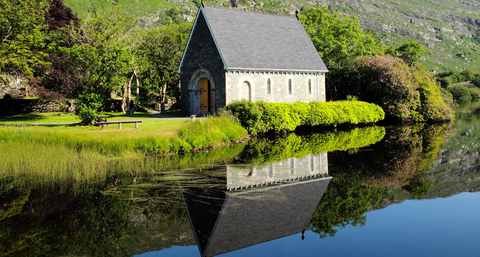
Experiential learning in Environment
Don't just study the world - experience it
You can learn a lot about the environment from a textbook. But here in our faculty, the largest faculty of Environment in Canada, we believe that in order to truly understand the way the world works, you have to get outside and experience it.
That’s why in Environment, we don’t just sit in classrooms waiting for the world to change – we take real action. Environment students travel to the arctic to study the impact of climate change on sea ice. Or we go to the Atlantic coast to understand the interactions between marine ecosystems and local economies. Or we talk with citizens, politicians and developers in the regions we visit to understand the way our communities need to grow to meet the future.
No matter the program, Environment students are putting skills into practice, out in the real world. And after graduation, Environment students are ready to make real change.
in Canada for hands-on experiential learning (Maclean’s student voices survey, 2022)
of Environment courses include some Field Study
Direct-entry Environment programs offer hands-on learning opportunities

In the lab
Experiential learning starts in the Ecology Lab, our headquarters for hands-on learning in Environment. This community hub is so much more than a lab – it’s where we come together to learn, make, grow and discover.

In our backyard
If you visit the fields, streams, forests and public spaces around Waterloo, chances are good you’ll see Environment students collecting samples, identifying species, and assessing traffic while developing the skills that will inform their degrees and careers.

Around the world
Every year, Environment students are travelling across oceans to learn more about the world. For example, in 2024, students visited Cape Town, South Africa to study the unique intersections of ecology, economy, culture and city-building in one of the continent’s most historically complex cities.
Internationalize your degree
See the world from another perspective by immersing in another culture. Add travel to your degree with a semester or co-op term abroad.
Experiences that can change your life

2026 Environment field courses
Current students wishing to apply to either of the above courses should complete this form by November 14, 2025.
The field courses offered by the faculty are always evolving, so we can continue to offer students important, novel perspectives on our changing planet. In addition to these faculty-level elective courses, there are also field courses and experiences offered through our programs and schools.
For more information about field offerings for students in a specific program, contact us.
Drop us a line
Curious about how to internationalize your degree? Wondering how hands-on learning works in your program of interest? We're here to help answer all you Environment questions, big or small.
Reach out anytime using the form below and someone from our team will be happy to get back to you with answers.



